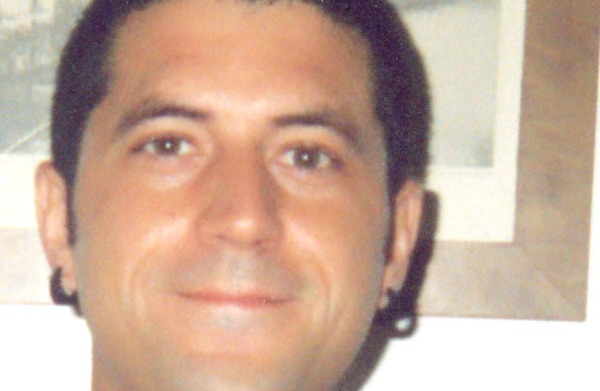
Irish republican groups have been expressing their support for Basque political prisoner Patxi Ruiz, who has been hospitalised with kidney failure after a hunger and thirst strike which began on May 11.
A Basque support group, the ‘Movement for Amnesty and Against Repression’, said the activist is still able to walk on his own but has warned that his condition is very serious and there is a “real risk of death”.
Patxi Ruiz has been on hunger and thirst strike in the Murcia II prison in southeastern Spain in a protest against the harsh and inhumane conditions faced by prisoners. He is one of several political prisoners held in Spanish jails as a result of the struggle for Basque independence, which has parallels with the Irish freedom struggle.
The campaign to highlight the deteriorating situation faced by Basque political prisoners is currently focused on the danger presented by the Covid-19 virus. Prison actions have been met with oppressive treatment by the Spanish authorities, and their degrading and inhumane medical treatment escalated the protest into the current hunger strike.
It is understood Mr Ruiz is still continuing to maintain his hunger and thirst strike in hospital in Murcia after he was taken there against his will by a court order.
In a statement released by the IRPWA, Irish republican prisoners expressed “full solidarity” with Mr Ruiz and those who have mobilised inside and outside prison.
The prisoners, housed in Portlaoise, Maghaberry and Mountjoy jails, also expressed their full support to the Basque people and their right to independence.
“Sharing not only similar ideological and philosophical similarities, the Irish and Basque Political Prisoners share the similar histories of mistreatment within the jails,” they said.
“From forced isolation to assaults, to inhumane and degrading cell conditions, there is also the constant attempt to criminalise our respective struggles.
“Internationally, anti-imperialist Political Prisoners have a history of using any tool available to them in the struggle not to be criminalised.”
They called on organisations such as Amnesty International and the Red Cross to not “sit idly by” while Mr Ruiz suffers.
They also took a swipe at Ireland’s “trendy left”, who they said express support and call for action for political prisoners in other countries, but are “nowhere to be seen when the equivalent demonstrations are held on their own doorstep for Irish political prisoners”.
Another prisoner at Maghaberry, republican socialist Paddy O’Neill, fasted for 24 hours on Thursday in support of Mr Ruiz.
Pádraic MacCoitir of Lasair Dhearg spoke of Irish hunger strikers Michael Gaughan and Frank Stagg, and saw many similarities between them and the plight of Patxi Ruiz.
“The screws in English gaols treated the prisoners very harshly and they were supported by doctors and nurses as they force-fed those on hunger strike,” he said.
“Patxi Ruiz was taken to the prison hospital a number of weeks ago for serious injuries and whilst there the doctors and nurses didn’t treat him properly. They have been verbally abusing him and he has embarked on the hunger and thirst strike seeking better treatment.”
Sinn Féin’s Seán Crowe expressed concern following Mr Ruiz’s hospitalisation. “The Spanish administration must immediately move to resolve the issues at the heart of this situation before Patxi’s condition deteriorates further,” he said.
“We are now almost a decade into a peace process in the Basque Country and it is way past time that the Spanish government commenced a process to address outstanding issues regarding a lasting peace settlement; including the issue of Basque political prisoners.”
The 32 County Sovereignty Movement said Mr Ruiz and his comrades had been “pushed to their limits” over the years. They said members of the ETA armed group had received “nothing but brutal treatment from the Spanish and their lackies in the Basque country.
“Most of the political prisoners find themselves in jail as a result of tactics not seen since the time of Franco, political parties have been banned and their members imprisoned, newspapers have been closed down with editors and journalists tortured, Basque language academics are prosecuted and the list goes on. These things are not happening in some far away country many years ago, its happening today in an EU country.
“We more than anyone know where this could lead, not just for our comrades and their families but for the wider societies in both Spain and the Basque country.
“Have Spain like England learned nothing from their disastrous involvement in other peoples countries? Spain would do well to learn from England’s mistakes in Ireland.”
![[Irish Republican News]](https://republican-news.org/graphics/title_gifs/rn.gif)
![[Irish Republican News]](https://republican-news.org/graphics/title_gifs/harp.gif)

